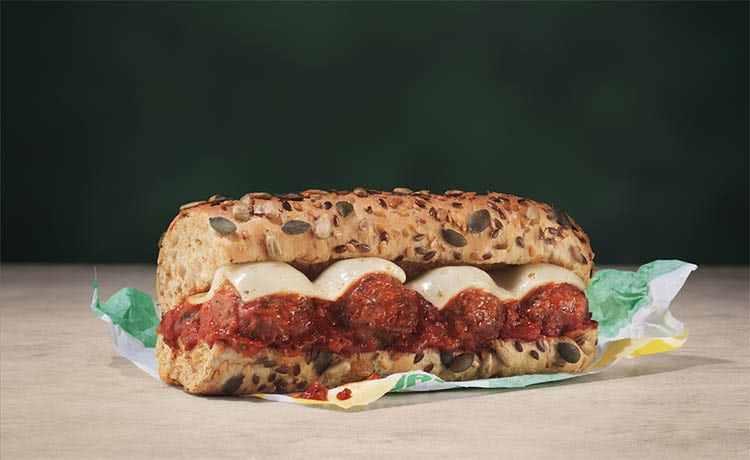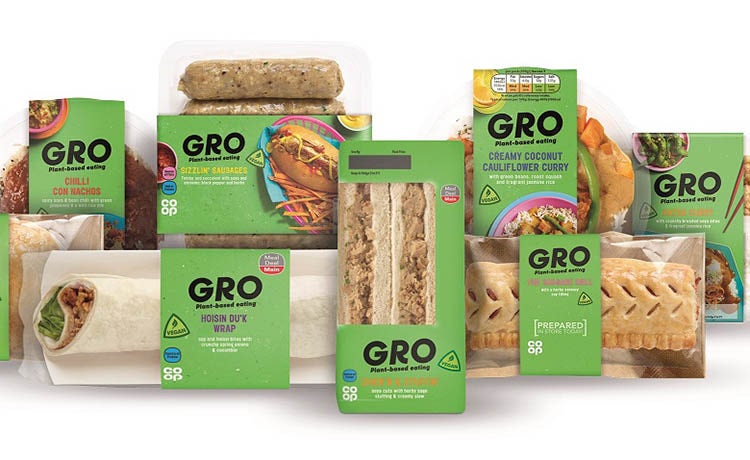This Veganuary brands should be wary of ‘meat-free’ mania
As every brand from supermarket retailers to fast food giants race to bring vegan food to the masses, it is worth taking a step back and asking – does the world need another jackfruit wrap?

Barely a day goes by without another vegan, plant-based, meat alternative product hitting our shelves. Everyone from supermarkets to fast food chains are slugging it out in a relentless bid to cash in on Veganuary 2020.
In fact, forget January. Retailers and restaurant brands, still licking their wounds after a tough 2019, are betting their future brand health on the continuing popularity of flexitarian lifestyles all year round.
You can see why. Gregg’s vegan sausage roll became its biggest new product launch for five years when it was unveiled in January 2019. The bakery chain is hoping to repeat the same trick with its new meat-free steak bake, while the launch of its first vegan doughnut is imminent.
Gregg’s chief exec Roger Whiteside certainly believes in the plant-based hype, revealing in November he had gone vegan after watching Netflix documentary The Game Changers.
Elsewhere, Morrisons may have seen sales drop during a “challenging” Christmas period, but growth of its Free From gluten, wheat, dairy and lactose brand bucked the trend, with sales up 34% over Christmas and New Year.
Co-op rolls out meat-free range as brands cash in on Veganuary
Over at Tesco, which launched its “affordable” plant-based Plant Chef range in September, demand for vegan foods has risen by 40%. Meanwhile, Christmas 2019 was Waitrose’s biggest to date for vegan food, with sales up by 40% year on year, prompting the retailer to double its plant-based offering by adding more than 30 new meat-free products across its own-label and branded ranges.
The Co-op, which estimates the vegan sector to be worth a whopping £1bn, is endeavouring to claim a sizeable chunk of the market with its new meat-free brand Gro. Comprising more than 35 plant-based products aimed at convenience shoppers Gro is – according to the Co-op – the “largest ever product roll-out of own-brand vegan products by a supermarket”.

Going toe-to-toe with Tesco at the affordable end of the market is Asda, which believes it has developed the “most affordable” range of vegan products on the market. The supermarket even hooked its new ‘Don’t Compromise’ ad campaign around the launch of its “first-to-market” mushroom-based meat alternative range.
Not to be outdone, Aldi launched its first vegan-friendly product last week – a vegan sausage roll available in either No Pork or BBQ Jackfruit. Priced at just 99p, Greggs and Asda had better watch their backs.
And if that wasn’t enough there’s Subway, which added a Meatless Meatball Marinara sub to its menu, and Pizza Hut, which launched a special Veganuary version of its pepperoni pizza – the ‘Vegan Pepperphoni’ – topped with pea protein and vegan cheese.
The heat is on
Fast food chains are, in fact, where the veganism debate is at its most fiery. KFC has branched out with a Quorn fillet chicken burger, while Burger King is bringing a plant-based pork sausage to its US restaurants as part of its ongoing tie-up with Impossible Foods.
The fast food giant is also rolling out the meat-free Rebel Whopper – positioned as ‘a burger for the ‘gram’ – across Europe in collaboration with Unilever’s Vegetarian Butcher.
Asda tells customers ‘don’t settle for less’ in new campaign
The Impossible Whopper is one of the most successful product launches in Burger King’s history. Although, interestingly sales of the standard beef Whopper have increased since the meat-free version launched in the US, suggesting the chain is attracting new customers rather than loyal fans are falling out of love with flame grilled beef.
Despite the financial success open to brands in their push for plant-based, there is a fine line to tread.
Both KFC and Burger King have been caught up in controversy in their efforts to go vegan. KFC has admitted to selling a customer a chicken burger, rather than the plant-based version they paid for, while Burger King’s Rebel Whopper is cooked on a meat grill and therefore cannot be eaten by vegans.

It is also worth noting that rival McDonald’s has gone about things in a different way. Rather than replacing its patties with meat-free alternatives, the fast food giant has introduced veggie goujons and dippers made from red pepper and sundried tomato pesto, approved by the Vegan Society.
It has also spent years talking up the quality of its 100% British and Irish beef, sourced from farmers approved by a nationally recognised farm assurance scheme. The same story is not being told by the likes of KFC and Burger King.
Whichever way you look at it, the plant-based market is in danger of becoming diluted very quickly with a slew of unrecognisable, interchangeable products offering the same tastes and textures.
Waking up to this fact, brands are scrambling to find their point of difference in the meat-free arms race, whether it be having the largest range or the most affordable offering, or competing over the most virtuous source of protein.
While it is welcome to see alternative, plant-based diets entering the culinary mainstream and dispelling myths that all vegan food is expensive, just because food is meat-free doesn’t necessarily make it good for you. Vegan sausage rolls and burgers may be less calorific than the real thing, but they are still highly-processed.
Furthermore, there is a section of the vegan community that is fundamentally opposed to ever setting foot in a fast food chain such as KFC or Burger King because of their wider use of animal products.
Brands need to have clear point of view on what plant-based means for them and think it through all the way from the recipe to serving the product to the customer. Rather than being blinded by their ambition to capitalise on a £1bn market, it is worth asking whether the nation needs yet another BBQ jackfruit wrap and whether what they are offering really is as vegan – or even nutritious – as they claim.







